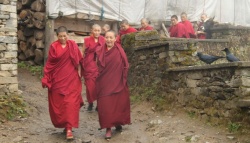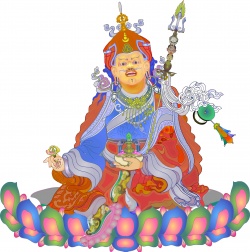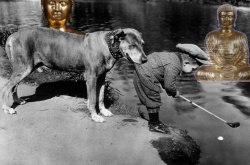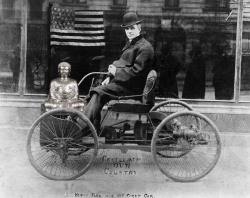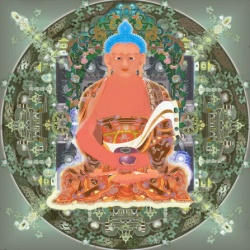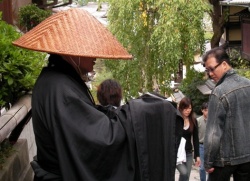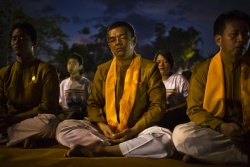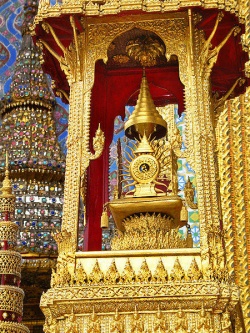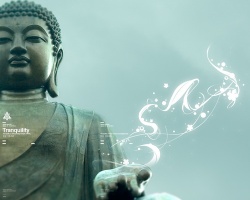Difference between revisions of "Buddhist Precepts in Theravada Buddhism by Bodhicarini Upasika Jayasili Jacquetta Gomes"
| Line 1: | Line 1: | ||
| − | <nomobile>{{DisplayImages|2850|138|3827|602|3600|4155|2078|792|1225|1895|305|3125|24|765|675|324 | + | <nomobile>{{DisplayImages|2850|138|3827|602|3600|4155|2078|792|1225|1895|305|3125|24|765|675|324}}</nomobile> |
{{Centre|<big><big> Buddhist Precepts in Theravada Buddhism </big></big><br/> | {{Centre|<big><big> Buddhist Precepts in Theravada Buddhism </big></big><br/> | ||
By Bodhicarini Upasika Jayasili Jacquetta Gomes BGKT Buddhist Group of Kendal (Theravada) England UK<br/> | By Bodhicarini Upasika Jayasili Jacquetta Gomes BGKT Buddhist Group of Kendal (Theravada) England UK<br/> | ||
Updated 26th August 2015}} | Updated 26th August 2015}} | ||
| − | Theravada Buddhism offers several different sets of Precepts. | + | [[Theravada Buddhism]] offers several different sets of [[Precepts]]. |
==[[Panca Sila]] (The [[Five Precepts]])== | ==[[Panca Sila]] (The [[Five Precepts]])== | ||
| − | [[Panca Sila]] ([[The Five Precepts]]) are the minimum requirements for lay practitioners in Theravada Buddhism. | + | [[Panca Sila]] ([[The Five Precepts]]) are the minimum requirements for [[lay practitioners]] in [[Theravada Buddhism]]. |
:1) [[Panatipata veramani sikkhapadam samadiyami]] <br/> | :1) [[Panatipata veramani sikkhapadam samadiyami]] <br/> | ||
| − | :I undertake the Precept to refrain from killing and injuring living beings | + | :I undertake the [[Precept]] to refrain from {{Wiki|killing}} and injuring [[living beings]] |
:2) [[Adinnadana veramani sikkhapadam samadiyami]] <br/> | :2) [[Adinnadana veramani sikkhapadam samadiyami]] <br/> | ||
| − | :I undertake the Precept to refrain from taking that which is not given | + | :I undertake the [[Precept]] to refrain from taking that which is not given |
:3) [[Kamesu micchacara veramani sikkhapadam samadiyami]] <br/> | :3) [[Kamesu micchacara veramani sikkhapadam samadiyami]] <br/> | ||
| − | :I undertake the Precept to refrain from excessive sensuality | + | :I undertake the [[Precept]] to refrain from excessive [[sensuality]] |
:4) [[Musavada veramani sikkhapadam samadiyami]] <br/> | :4) [[Musavada veramani sikkhapadam samadiyami]] <br/> | ||
| − | :I undertake the Precept to refrain from false and harmful speech | + | :I undertake the [[Precept]] to refrain from false and harmful {{Wiki|speech}} |
:5) [[Sura – meraya – majja pamadatthana veramani sikkhapadam samadiyami]] <br/> | :5) [[Sura – meraya – majja pamadatthana veramani sikkhapadam samadiyami]] <br/> | ||
| − | :I undertake the Precept to refrain from drink and drugs which fuddle the mind and reduce mindfulness | + | :I undertake the [[Precept]] to refrain from drink and [[drugs]] which fuddle the [[mind]] and reduce [[mindfulness]] |
| − | The word Upasaka denotes a male lay disciple and Upasika denotes a female lay disciple. An Upasaka is defined by Venerable Nyanatiloka in his Buddhist Dictionary as: | + | The [[word]] [[Upasaka]] denotes a {{Wiki|male}} lay [[disciple]] and [[Upasika]] denotes a {{Wiki|female}} lay [[disciple]]. An [[Upasaka]] is defined by [[Venerable]] [[Nyanatiloka]] in his [[Buddhist]] {{Wiki|Dictionary}} as: |
| − | Literally ‘sitting close by, i.e. a ‘lay adherent’ is any lay follower who is filled with faith and has taken refuge in the Buddha, his doctrine and his community of noble disciples. His virtue is regarded as pure if he observes the Five Precepts (Panca Sila). He should avoid the following wrong ways of livelihood: trading in arms; in living beings; meat; alcohol; and poison." | + | Literally ‘sitting close by, i.e. a ‘lay adherent’ is any lay follower who is filled with [[faith]] and has taken [[refuge]] in the [[Buddha]], his [[doctrine]] and his {{Wiki|community}} of [[noble disciples]]. His [[virtue]] is regarded as [[pure]] if he observes the [[Five Precepts]] ([[Panca Sila]]). He should avoid the following wrong ways of [[livelihood]]: trading in arms; in [[living beings]]; meat; [[alcohol]]; and [[poison]]." |
==[[Ajivatthamaka Sila]] ([[Eight Precepts with Right Livelihood as the Eighth]])== | ==[[Ajivatthamaka Sila]] ([[Eight Precepts with Right Livelihood as the Eighth]])== | ||
| − | In Theravada Buddhism there are two versions of the Eight Precepts: Atthangika Uposatha Sila (Eight Uposatha Precepts) and Ajivatthamaka Sila (Eight Precepts with Right Livelihood as the Eighth). | + | In [[Theravada Buddhism]] there are two versions of the [[Eight Precepts]]: Atthangika [[Uposatha]] [[Sila]] (Eight [[Uposatha]] [[Precepts]]) and [[Ajivatthamaka Sila]] ([[Eight Precepts]] with [[Right Livelihood]] as the Eighth). |
| − | The Ajivatthamaka Sila builds upon the framework of Panca Sila (The Five Precepts). It expands the Fourth Precept of the Panca Sila (The Five Precepts) to specify the four types of wrong speech from which a lay disciple should abstain. The Ajivatthamaka Sila also requires abstention from wrong livelihood, including trading in arms; in living beings (slavery, prostitution); meat; alcohol; and poison. | + | The [[Ajivatthamaka Sila]] builds upon the framework of [[Panca Sila]] (The [[Five Precepts]]). It expands the [[Fourth Precept]] of the [[Panca Sila]] (The [[Five Precepts]]) to specify the four types of [[wrong speech]] from which a lay [[disciple]] should abstain. The [[Ajivatthamaka Sila]] also requires abstention from [[wrong livelihood]], [[including]] trading in arms; in [[living beings]] ([[slavery]], [[prostitution]]); meat; [[alcohol]]; and [[poison]]. |
| − | * "The three constituents of the Morality Group of the Eightfold Path when considered in detail become the Ajivatthamaka Sila." (Ledi Sayadaw, Wheel 171-174 page 10) | + | * "The three constituents of the [[Morality]] Group of the [[Eightfold Path]] when considered in detail become the [[Ajivatthamaka Sila]]." ([[Ledi Sayadaw]], [[Wheel]] 171-174 page 10) |
| − | * "The perfect moral conduct or character can be categorised under the Eight Precepts called the Ajivatthamaka Sila." (Venerable Balangoda Ananda Maitreya, 1995, page 16) | + | * "The {{Wiki|perfect}} [[moral conduct]] or [[character]] can be categorised under the [[Eight Precepts]] called the [[Ajivatthamaka Sila]]." ([[Venerable]] [[Balangoda Ananda Maitreya]], 1995, page 16) |
| − | * Ajivatthamaka Sila occurs in the Pali Canon in the Abhidhamma Pitaka, the Sutta Pitaka and the Commentaries. | + | * [[Ajivatthamaka Sila]] occurs in the [[Pali Canon]] in the [[Abhidhamma Pitaka]], the [[Sutta Pitaka]] and the Commentaries. |
[[Ajivatthamaka Sila]] ([[Eight Precepts with Right Livelihood as the Eighth]]): | [[Ajivatthamaka Sila]] ([[Eight Precepts with Right Livelihood as the Eighth]]): | ||
:1) [[Panatipata veramani sikkhapadam samadiyami]]<br/> | :1) [[Panatipata veramani sikkhapadam samadiyami]]<br/> | ||
| − | :I undertake the Precept to refrain from killing and injuring living beings | + | :I undertake the [[Precept]] to refrain from {{Wiki|killing}} and injuring [[living beings]] |
:2) [[Adinnadana veramani sikkhapadam samadiyami]]<br/> | :2) [[Adinnadana veramani sikkhapadam samadiyami]]<br/> | ||
| − | :I undertake the Precept to refrain from taking that which is not given | + | :I undertake the [[Precept]] to refrain from taking that which is not given |
:3) [[Kamesu micchacara veramani sikkhapadam samadiyami]]<br/> | :3) [[Kamesu micchacara veramani sikkhapadam samadiyami]]<br/> | ||
| − | :I undertake the Precept to refrain from excessive sensuality | + | :I undertake the [[Precept]] to refrain from excessive [[sensuality]] |
:4) [[Musavada veramani sikkhapadam samadiyami]]<br/> | :4) [[Musavada veramani sikkhapadam samadiyami]]<br/> | ||
| − | :I undertake the Precept to refrain from false and harmful speech | + | :I undertake the [[Precept]] to refrain from false and harmful {{Wiki|speech}} |
:5) [[Pisuna vaca veramani sikkhapadam samadiyami]]<br/> | :5) [[Pisuna vaca veramani sikkhapadam samadiyami]]<br/> | ||
| − | :I undertake the Precept to refrain from backbiting | + | :I undertake the [[Precept]] to refrain from backbiting |
:6) [[Pharusa vaca veramani sikkhapadam samadiyami]]<br/> | :6) [[Pharusa vaca veramani sikkhapadam samadiyami]]<br/> | ||
| − | :I undertake the Precept to refrain from using harsh or abusive speech | + | :I undertake the [[Precept]] to refrain from using harsh or [[abusive speech]] |
:7) [[Samphappalapa veramani sikkhapadam samadiyami]]<br/> | :7) [[Samphappalapa veramani sikkhapadam samadiyami]]<br/> | ||
| − | :I undertake the Precept to refrain from useless or meaningless conversation | + | :I undertake the [[Precept]] to refrain from useless or meaningless [[conversation]] |
:8) [[Micchajiva veramani sikkhapadam samadiyami]]<br/> | :8) [[Micchajiva veramani sikkhapadam samadiyami]]<br/> | ||
| − | :I undertake the Precept to refrain from wrong means of livelihood | + | :I undertake the [[Precept]] to refrain from wrong means of [[livelihood]] |
==[[Atthangika Uposatha Sila]] ([[Eight Uposatha Precepts]])== | ==[[Atthangika Uposatha Sila]] ([[Eight Uposatha Precepts]])== | ||
| − | In Theravada Buddhism there are two versions of the Eight Precepts: Atthangika Uposatha Sila (Eight Uposatha Precepts) and Ajivatthamaka Sila (Eight Precepts with Right Livelihood as the Eighth). | + | In [[Theravada Buddhism]] there are two versions of the [[Eight Precepts]]: Atthangika [[Uposatha]] [[Sila]] (Eight [[Uposatha]] [[Precepts]]) and [[Ajivatthamaka Sila]] ([[Eight Precepts]] with [[Right Livelihood]] as the Eighth). |
| − | Atthangika Uposatha Sila (The Eight Uposatha Precepts) are observed on Uposatha Days (i.e. Full Moon, New Moon and the two Half Moon Days). Lay Buddhists often wear white clothes and attend Viharas to observe these Precepts. | + | Atthangika [[Uposatha]] [[Sila]] (The Eight [[Uposatha]] [[Precepts]]) are observed on [[Uposatha Days]] (i.e. [[Full Moon]], [[New Moon]] and the two [[Half Moon]] Days). Lay [[Buddhists]] often wear white [[clothes]] and attend [[Viharas]] to observe these [[Precepts]]. |
:1) [[Panatipata veramani sikkhapadam samadiyami]]<br/> | :1) [[Panatipata veramani sikkhapadam samadiyami]]<br/> | ||
| − | :I undertake the Precept to refrain from killing and injuring living beings | + | :I undertake the [[Precept]] to refrain from {{Wiki|killing}} and injuring [[living beings]] |
:2) [[Adinnadana veramani sikkhapadam samadiyami]]<br/> | :2) [[Adinnadana veramani sikkhapadam samadiyami]]<br/> | ||
| − | :I undertake the Precept to refrain from taking that which is not given | + | :I undertake the [[Precept]] to refrain from taking that which is not given |
:3) [[Abrahmacariya veramani sikkhapadam samadiyami]]<br/> | :3) [[Abrahmacariya veramani sikkhapadam samadiyami]]<br/> | ||
| − | :I undertake the Precept to refrain from non-celibate conduct | + | :I undertake the [[Precept]] to refrain from non-celibate conduct |
:4) [[Musavada veramani sikkhapadam samadiyami]]<br/> | :4) [[Musavada veramani sikkhapadam samadiyami]]<br/> | ||
| − | :I undertake the Precept to refrain from false and harmful speech | + | :I undertake the [[Precept]] to refrain from false and harmful {{Wiki|speech}} |
:5) [[Sura – meraya – majja pamadatthana veramani sikkhapadam samadiyami]]<br/> | :5) [[Sura – meraya – majja pamadatthana veramani sikkhapadam samadiyami]]<br/> | ||
| − | :I undertake the Precept to refrain from drink and drugs which fuddle the mind and reduce mindfulness | + | :I undertake the [[Precept]] to refrain from drink and [[drugs]] which fuddle the [[mind]] and reduce [[mindfulness]] |
:6) [[Vikala bhojana veramani sikkhapadam samadiyami]]<br/> | :6) [[Vikala bhojana veramani sikkhapadam samadiyami]]<br/> | ||
| − | :I undertake the Precept to refrain from taking food at an unreasonable time | + | :I undertake the [[Precept]] to refrain from taking [[food]] at an unreasonable time |
:7) [[Nacca – gita – vadita – visuka – dassana – mala - gandha vilepana - dharana mandana vibhusanatthana veramani sikkhapadam samadiyami]]<br/> | :7) [[Nacca – gita – vadita – visuka – dassana – mala - gandha vilepana - dharana mandana vibhusanatthana veramani sikkhapadam samadiyami]]<br/> | ||
| − | :I undertake the Precept to refrain from dancing, singing, music, and unseemly shows; from the use of garlands, perfumes, and unguents; and from things that tend to beautify and adorn [the person] | + | :I undertake the [[Precept]] to refrain from [[dancing]], singing, [[music]], and unseemly shows; from the use of garlands, [[perfumes]], and unguents; and from things that tend to beautify and adorn [the [[person]]] |
:8) [[Ucchasayana – Mahasayana veramani sikkhapadam samadiyami]]<br/> | :8) [[Ucchasayana – Mahasayana veramani sikkhapadam samadiyami]]<br/> | ||
| − | :I undertake the Precept to refrain from using high and luxurious seats and beds | + | :I undertake the [[Precept]] to refrain from using high and luxurious seats and beds |
==[[Navanga Uposatha Sila]] ([[Nine Uposatha Precepts]])== | ==[[Navanga Uposatha Sila]] ([[Nine Uposatha Precepts]])== | ||
| − | Navanga Uposatha Sila (Nine Uposatha Precepts) are an expansion of Atthangika Uposatha Sila (Eight Uposatha Precepts). | + | Navanga [[Uposatha]] [[Sila]] (Nine [[Uposatha]] [[Precepts]]) are an expansion of Atthangika [[Uposatha]] [[Sila]] (Eight [[Uposatha]] [[Precepts]]). |
| − | Navanga Uposatha Sila (The Nine Uposatha Precepts) are observed on Uposatha Days (Full Moon, New Moon and the two Half Moon Days). Lay Buddhists often wear white clothes and attend Viharas to observe these precepts. | + | Navanga [[Uposatha]] [[Sila]] (The Nine [[Uposatha]] [[Precepts]]) are observed on [[Uposatha Days]] ([[Full Moon]], [[New Moon]] and the two [[Half Moon]] Days). Lay [[Buddhists]] often wear white [[clothes]] and attend [[Viharas]] to observe these [[precepts]]. |
| − | Navanga Uposatha Sila (The Nine Uposatha Precepts) are listed in the Pali Canon in The Book of the Gradual Sayings (Anguttara Nikaya) Volume IV The Book of the Nines, viii Amity, pages 259-260. (Published by the PTS Pali Text Society). The Pali Commentary to this Sutta states "Loving-kindness meditation is included in accordance with the temperament of the people to be guided". | + | Navanga [[Uposatha]] [[Sila]] (The Nine [[Uposatha]] [[Precepts]]) are listed in the [[Pali Canon]] in The [[Book]] of the [[Gradual Sayings]] ([[Anguttara Nikaya]]) Volume IV The [[Book]] of the Nines, viii [[Amity]], pages 259-260. (Published by the PTS [[Pali Text Society]]). The [[Pali]] Commentary to this [[Sutta]] states "[[Loving-kindness meditation]] is included in accordance with the {{Wiki|temperament}} of the [[people]] to be guided". |
{{Nolinking|Navanga Uposatha Sila (Nine Uposatha Precepts) are discussed in Win, Sao Htun Hmat, Basic Principles of Burmese Buddhism.}} | {{Nolinking|Navanga Uposatha Sila (Nine Uposatha Precepts) are discussed in Win, Sao Htun Hmat, Basic Principles of Burmese Buddhism.}} | ||
| Line 114: | Line 114: | ||
: 1) [[Panatipata veramani sikkhapadam samadiyami]]<br/> | : 1) [[Panatipata veramani sikkhapadam samadiyami]]<br/> | ||
| − | : I undertake the Precept to refrain from killing and injuring living beings<br/> | + | : I undertake the [[Precept]] to refrain from {{Wiki|killing}} and injuring [[living beings]]<br/> |
: 2) [[Adinnadana veramani sikkhapadam samadiyami]]<br/> | : 2) [[Adinnadana veramani sikkhapadam samadiyami]]<br/> | ||
| − | : I undertake the Precept to refrain from taking that which is not given<br/> | + | : I undertake the [[Precept]] to refrain from taking that which is not given<br/> |
: 3) [[Abrahmacariya veramani sikkhapadam samadiyami]]<br/> | : 3) [[Abrahmacariya veramani sikkhapadam samadiyami]]<br/> | ||
| − | : I undertake the Precept to refrain from non-celibate conduct<br/> | + | : I undertake the [[Precept]] to refrain from non-celibate conduct<br/> |
: 4) [[Musavada veramani sikkhapadam samadiyami]]<br/> | : 4) [[Musavada veramani sikkhapadam samadiyami]]<br/> | ||
| − | : I undertake the Precept to refrain from false and harmful speech<br/> | + | : I undertake the [[Precept]] to refrain from false and harmful {{Wiki|speech}}<br/> |
: 5) [[Sura – meraya – majja pamadatthana veramani sikkhapadam samadiyami]]<br/> | : 5) [[Sura – meraya – majja pamadatthana veramani sikkhapadam samadiyami]]<br/> | ||
| − | : I undertake the Precept to refrain from drink and drugs which fuddle the mind and reduce mindfulness<br/> | + | : I undertake the [[Precept]] to refrain from drink and [[drugs]] which fuddle the [[mind]] and reduce [[mindfulness]]<br/> |
: 6) [[Vikala bhojana veramani sikkhapadam samadiyami]]<br/> | : 6) [[Vikala bhojana veramani sikkhapadam samadiyami]]<br/> | ||
| − | : I undertake the Precept to refrain from taking food at an unreasonable time<br/> | + | : I undertake the [[Precept]] to refrain from taking [[food]] at an unreasonable time<br/> |
: 7) [[Nacca – gita – vadita – visuka – dassana – mala - gandha vilepana - dharana mandana vibhusanatthana veramani sikkhapadam samadiyami]]<br/> | : 7) [[Nacca – gita – vadita – visuka – dassana – mala - gandha vilepana - dharana mandana vibhusanatthana veramani sikkhapadam samadiyami]]<br/> | ||
| − | : I undertake the Precept to refrain from dancing, singing, music, and unseemly shows; from the use of garlands, perfumes, and unguents; and from things that tend to beautify and adorn [the person]<br/> | + | : I undertake the [[Precept]] to refrain from [[dancing]], singing, [[music]], and unseemly shows; from the use of garlands, [[perfumes]], and unguents; and from things that tend to beautify and adorn [the [[person]]]<br/> |
: 8) [[Ucchasayana – Mahasayana veramani sikkhapadam samadiyami]]<br/> | : 8) [[Ucchasayana – Mahasayana veramani sikkhapadam samadiyami]]<br/> | ||
| − | : I undertake the Precept to refrain from using high and luxurious seats and beds<br/> | + | : I undertake the [[Precept]] to refrain from using high and luxurious seats and beds<br/> |
: 9) [[Metta saha gatena cetasa, sabba pana bhutesu manasam pharitva viharanam samadiyami]]<br/> | : 9) [[Metta saha gatena cetasa, sabba pana bhutesu manasam pharitva viharanam samadiyami]]<br/> | ||
| − | : I undertake the Precept to stay with a tranquil mind infused with volition of love unto all living creatures<br/> | + | : I undertake the [[Precept]] to stay with a [[tranquil]] [[mind]] [[infused]] with [[Wikipedia:Volition (psychology)|volition]] of [[love]] unto all living creatures<br/> |
==[[Eight Lifetime Precepts]]== | ==[[Eight Lifetime Precepts]]== | ||
| − | The Eight Lifetime Precepts were developed by Bhante Henepola Gunaratana Maha Thera at the Bhavana Society, West Virginia, USA. | + | The Eight [[Lifetime]] [[Precepts]] were developed by [[Bhante Henepola Gunaratana]] [[Maha Thera]] at the [[Bhavana Society]], [[West Virginia]], {{Wiki|USA}}. |
http://www.bhavanasociety.org/ | http://www.bhavanasociety.org/ | ||
| − | The Eight Lifetime Precepts are an expansion of Ajivatthamaka Sila. The first seven Precepts are the same but the eighth Precept is an amalgamation of the eighth Precept of Ajivatthamaka Sila and the fifth Precept of Panca Sila (The Five Precepts):<br/> | + | The Eight [[Lifetime]] [[Precepts]] are an expansion of [[Ajivatthamaka Sila]]. The first seven [[Precepts]] are the same but the eighth [[Precept]] is an amalgamation of the eighth [[Precept]] of [[Ajivatthamaka Sila]] and the fifth [[Precept]] of [[Panca Sila]] (The [[Five Precepts]]):<br/> |
| − | I undertake the training rule [Precept] to abstain from wrong livelihood; and drinks and drugs that cause heedlessness | + | I undertake the {{Wiki|training}} {{Wiki|rule}} [[[Precept]]] to abstain from [[wrong livelihood]]; and drinks and [[drugs]] that [[cause]] heedlessness |
| − | The Bhavana Society website explains "The lifetime precepts … include the right speech precepts found in the eightfold path and right | + | The [[Bhavana Society]] website explains "The [[lifetime]] [[precepts]] … include the [[right speech]] [[precepts]] found in the [[eightfold path]] and [[right livelihood]]… In [[traditional]] [[Buddhist]] countries, abstaining from [[intoxicants]] is assumed to be included in the [[precept]] on [[right livelihood]]. For clarification, we spell it out." |
| − | Bhante Henepola Gunaratana discusses the Eight Lifetime Precepts in: | + | [[Bhante Henepola Gunaratana]] discusses the Eight [[Lifetime]] [[Precepts]] in: |
{{Nolinking|Henepola Gunaratana, Bhante. 2008. (Revised edition) Bhavana Vandana: Devotions for Meditation. (High View West Virginia USA, Bhavana Society).}}<br/> | {{Nolinking|Henepola Gunaratana, Bhante. 2008. (Revised edition) Bhavana Vandana: Devotions for Meditation. (High View West Virginia USA, Bhavana Society).}}<br/> | ||
| Line 158: | Line 158: | ||
{{Nolinking|Henepola Gunaratana, Bhante. 2001. Eight Mindful Steps to Happiness: Walking the Path of the Buddha. (Boston USA, Wisdom Publications). (0-86171-176-9)}}<br/> | {{Nolinking|Henepola Gunaratana, Bhante. 2001. Eight Mindful Steps to Happiness: Walking the Path of the Buddha. (Boston USA, Wisdom Publications). (0-86171-176-9)}}<br/> | ||
| − | Available online at Google Books http://books.google.com | + | Available online at Google [[Books]] http://books.google.com |
==[[Bodhicari Precepts]] == | ==[[Bodhicari Precepts]] == | ||
| − | Bodhicaris can be defined as | + | [[Bodhicaris]] can be defined as “[[practitioners of the Buddha Dhamma]] who have [[attainment]] of [[enlightenment]] as their goal”. In [[Pali]], the {{Wiki|feminine}} [[form]] is [[Bodhicarini]]. |
| − | The Bodhicari Precepts are an expansion of Ajivatthamaka Sila (Eight Precepts with Right Livelihood as the Eighth) and Panca Sila (The Five Precepts). | + | The [[Bodhicari Precepts]] are an expansion of [[Ajivatthamaka Sila]] ([[Eight Precepts]] with [[Right Livelihood]] as the Eighth) and [[Panca Sila]] (The [[Five Precepts]]). |
{{Nolinking|The Bodhicari Precepts are discussed in “The Value of Precepts”, Bodhicari Vajira, Sakyadhita: International Association of Buddhist Women Newsletter, Volume 4 (1) (Summer 1993), pages 11-12.}}<br/> | {{Nolinking|The Bodhicari Precepts are discussed in “The Value of Precepts”, Bodhicari Vajira, Sakyadhita: International Association of Buddhist Women Newsletter, Volume 4 (1) (Summer 1993), pages 11-12.}}<br/> | ||
| Line 171: | Line 171: | ||
| − | ;Bodhicari Precepts: | + | ;[[Bodhicari Precepts]]: |
: 1) [[Panatipata veramani sikkhapadam samadiyami]]<br/> | : 1) [[Panatipata veramani sikkhapadam samadiyami]]<br/> | ||
| − | : I undertake the Precept to refrain from killing and injuring living beings<br/> | + | : I undertake the [[Precept]] to refrain from {{Wiki|killing}} and injuring [[living beings]]<br/> |
: 2) [[Adinnadana veramani sikkhapadam samadiyami]]<br/> | : 2) [[Adinnadana veramani sikkhapadam samadiyami]]<br/> | ||
| − | : I undertake the Precept to refrain from taking that which is not given<br/> | + | : I undertake the [[Precept]] to refrain from taking that which is not given<br/> |
: 3) [[Kamesu micchacara veramani sikkhapadam samadiyami]]<br/> | : 3) [[Kamesu micchacara veramani sikkhapadam samadiyami]]<br/> | ||
| − | : I undertake the Precept to refrain from excessive sensuality<br/> | + | : I undertake the [[Precept]] to refrain from excessive [[sensuality]]<br/> |
: 4) [[Musavada veramani sikkhapadam samadiyami]]<br/> | : 4) [[Musavada veramani sikkhapadam samadiyami]]<br/> | ||
| − | : I undertake the Precept to refrain from false and harmful speech<br/> | + | : I undertake the [[Precept]] to refrain from false and harmful {{Wiki|speech}}<br/> |
: 5) [[Pisuna vaca veramani sikkhapadam samadiyami]]<br/> | : 5) [[Pisuna vaca veramani sikkhapadam samadiyami]]<br/> | ||
| − | : I undertake the Precept to refrain from backbiting<br/> | + | : I undertake the [[Precept]] to refrain from backbiting<br/> |
: 6) [[Pharusa vaca veramani sikkhapadam samadiyami]]<br/> | : 6) [[Pharusa vaca veramani sikkhapadam samadiyami]]<br/> | ||
| − | : I undertake the Precept to refrain from using harsh or abusive speech<br/> | + | : I undertake the [[Precept]] to refrain from using harsh or [[abusive speech]]<br/> |
: 7) [[Samphappalapa veramani sikkhapadam samadiyami]]<br/> | : 7) [[Samphappalapa veramani sikkhapadam samadiyami]]<br/> | ||
| − | : I undertake the Precept to refrain from useless or meaningless conversation<br/> | + | : I undertake the [[Precept]] to refrain from useless or meaningless [[conversation]]<br/> |
: 8) [[Sura – meraya – majja pamadatthana veramani sikkhapadam samadiyami]]<br/> | : 8) [[Sura – meraya – majja pamadatthana veramani sikkhapadam samadiyami]]<br/> | ||
| − | : I undertake the Precept to refrain from drink and drugs which fuddle the mind and reduce mindfulness<br/> | + | : I undertake the [[Precept]] to refrain from drink and [[drugs]] which fuddle the [[mind]] and reduce [[mindfulness]]<br/> |
: 9) [[Micchajiva veramani sikkhapadam samadiyami]]<br/> | : 9) [[Micchajiva veramani sikkhapadam samadiyami]]<br/> | ||
| − | : I undertake the Precept to refrain from wrong means of livelihood<br/> | + | : I undertake the [[Precept]] to refrain from wrong means of [[livelihood]]<br/> |
: 10) [[Sabba sattesu metta sahagatena cetasa viharana sikkhapadam samadiyami]]<br/> | : 10) [[Sabba sattesu metta sahagatena cetasa viharana sikkhapadam samadiyami]]<br/> | ||
| − | : I undertake the Precept to live every moment with loving-kindness to all living beings<br/> | + | : I undertake the [[Precept]] to live every [[moment]] with [[loving-kindness]] to [[all living beings]]<br/> |
: 11) [[Yavajivam aham ratanattayam na niggahissami tatheva tam samadarena garukaram karissamiti sikkhapadam samadiyami]]<br/> | : 11) [[Yavajivam aham ratanattayam na niggahissami tatheva tam samadarena garukaram karissamiti sikkhapadam samadiyami]]<br/> | ||
| − | : I undertake the Precept not to revile the Three Treasures [the Buddha, Dhamma and Sangha] but to cherish and uphold them<br/> | + | : I undertake the [[Precept]] not to revile the [[Three Treasures]] [the [[Buddha]], [[Dhamma]] and [[Sangha]]] but to cherish and uphold them<br/> |
: 12) [[Karunopaya kosalla pariggahitanam dasaparaminam paripurana sikkhapadam samadiyami]]<br/> | : 12) [[Karunopaya kosalla pariggahitanam dasaparaminam paripurana sikkhapadam samadiyami]]<br/> | ||
| − | : I undertake the Precept to practise the Ten Perfections with compassion and skill<br/> | + | : I undertake the [[Precept]] to practise the [[Ten Perfections]] with [[compassion]] and skill<br/> |
:[[Imani dvadasa sikkhapadam samadiyami]]<br/> | :[[Imani dvadasa sikkhapadam samadiyami]]<br/> | ||
| − | :I undertake these twelve Precepts with full sincerity | + | :I undertake these twelve [[Precepts]] with full sincerity |
| − | Paul David Numrich attended the Wesak ceremony in 1991 when the first Bodhicaris took these Bodhicari Precepts. He explains: | + | [[Paul David Numrich]] attended the [[Wesak]] {{Wiki|ceremony}} in 1991 when the first [[Bodhicaris]] took these [[Bodhicari Precepts]]. He explains: |
| − | ‘The twelve Bodhicari Precepts include … two borrowed Pali phrases and one Precept composed by Venerable Piyananda himself. The borrowed Pali, with translation and sources according to Venerable Piyananda, are (1) Sabba sattesu metta sahagatena cetasa viharana sikkhapadam samadiyami ‘I undertake the Precept to live every moment with loving-kindness to all living | + | ‘The twelve [[Bodhicari Precepts]] include … two borrowed [[Pali]] phrases and one [[Precept]] composed by [[Venerable]] [[Piyananda]] himself. The borrowed [[Pali]], with translation and sources according to [[Venerable]] [[Piyananda]], are (1) [[Sabba]] sattesu [[metta]] sahagatena cetasa viharana sikkhapadam samadiyami ‘I undertake the [[Precept]] to live every [[moment]] with [[loving-kindness]] to [[all living beings]]’ (from [[Nava Uposatha Sila]] [the Nine [[Uposatha]] [[Sila]] with [[loving-kindness]] as the Ninth]); and (2) Karunopaya kosalla pariggahitanam dasaparaminam paripurana sikkhapadam samadiyami, ‘I undertake the [[Precept]] to practise the [[Ten Perfections]] with [[compassion]] and skill’ (from [[Buddhagosa’s]] commentary on the [[Jataka]]). [[Venerable]] Piyananda’s original [[Precept]] was; Yavajivam aham ratanattayam na niggahissami tatheva tam samadarena garukaram karissamiti sikkhapadam samadiyami, I undertake the [[Precept]] not to revile the [[Three Treasures]] [the [[Buddha]], [[Dhamma]] and [[Sangha]]] but to cherish [[Precept]] not to revile the [[Three Treasures]] [the [[Buddha]], [[Dhamma]] and [[Sangha]]] but to cherish and uphold them’ |
{{Nolinking|Numrich, Paul David. Old Wisdom in the New World: Americanization in Two Immigrant Theravada Buddhist Temples. (Knoxville Tennessee, The University of Tennessee Press, 1996) (0-87049-905-X) page 130.}}<br/> | {{Nolinking|Numrich, Paul David. Old Wisdom in the New World: Americanization in Two Immigrant Theravada Buddhist Temples. (Knoxville Tennessee, The University of Tennessee Press, 1996) (0-87049-905-X) page 130.}}<br/> | ||
| − | Available online at Google Books http://books.google.com | + | Available online at Google [[Books]] http://books.google.com |
Revision as of 13:40, 3 April 2016
Buddhist Precepts in Theravada Buddhism
By Bodhicarini Upasika Jayasili Jacquetta Gomes BGKT Buddhist Group of Kendal (Theravada) England UK
Updated 26th August 2015
Theravada Buddhism offers several different sets of Precepts.
Panca Sila (The Five Precepts)
Panca Sila (The Five Precepts) are the minimum requirements for lay practitioners in Theravada Buddhism.
- 1) Panatipata veramani sikkhapadam samadiyami
- I undertake the Precept to refrain from killing and injuring living beings
- 2) Adinnadana veramani sikkhapadam samadiyami
- I undertake the Precept to refrain from taking that which is not given
- 3) Kamesu micchacara veramani sikkhapadam samadiyami
- I undertake the Precept to refrain from excessive sensuality
- 4) Musavada veramani sikkhapadam samadiyami
- I undertake the Precept to refrain from false and harmful speech
- 5) Sura – meraya – majja pamadatthana veramani sikkhapadam samadiyami
- I undertake the Precept to refrain from drink and drugs which fuddle the mind and reduce mindfulness
The word Upasaka denotes a male lay disciple and Upasika denotes a female lay disciple. An Upasaka is defined by Venerable Nyanatiloka in his Buddhist Dictionary as:
Literally ‘sitting close by, i.e. a ‘lay adherent’ is any lay follower who is filled with faith and has taken refuge in the Buddha, his doctrine and his community of noble disciples. His virtue is regarded as pure if he observes the Five Precepts (Panca Sila). He should avoid the following wrong ways of livelihood: trading in arms; in living beings; meat; alcohol; and poison."
Ajivatthamaka Sila (Eight Precepts with Right Livelihood as the Eighth)
In Theravada Buddhism there are two versions of the Eight Precepts: Atthangika Uposatha Sila (Eight Uposatha Precepts) and Ajivatthamaka Sila (Eight Precepts with Right Livelihood as the Eighth).
The Ajivatthamaka Sila builds upon the framework of Panca Sila (The Five Precepts). It expands the Fourth Precept of the Panca Sila (The Five Precepts) to specify the four types of wrong speech from which a lay disciple should abstain. The Ajivatthamaka Sila also requires abstention from wrong livelihood, including trading in arms; in living beings (slavery, prostitution); meat; alcohol; and poison.
- "The three constituents of the Morality Group of the Eightfold Path when considered in detail become the Ajivatthamaka Sila." (Ledi Sayadaw, Wheel 171-174 page 10)
- "The perfect moral conduct or character can be categorised under the Eight Precepts called the Ajivatthamaka Sila." (Venerable Balangoda Ananda Maitreya, 1995, page 16)
- Ajivatthamaka Sila occurs in the Pali Canon in the Abhidhamma Pitaka, the Sutta Pitaka and the Commentaries.
Ajivatthamaka Sila (Eight Precepts with Right Livelihood as the Eighth):
- 1) Panatipata veramani sikkhapadam samadiyami
- I undertake the Precept to refrain from killing and injuring living beings
- 2) Adinnadana veramani sikkhapadam samadiyami
- I undertake the Precept to refrain from taking that which is not given
- 3) Kamesu micchacara veramani sikkhapadam samadiyami
- I undertake the Precept to refrain from excessive sensuality
- 4) Musavada veramani sikkhapadam samadiyami
- I undertake the Precept to refrain from false and harmful speech
- 5) Pisuna vaca veramani sikkhapadam samadiyami
- I undertake the Precept to refrain from backbiting
- 6) Pharusa vaca veramani sikkhapadam samadiyami
- I undertake the Precept to refrain from using harsh or abusive speech
- 7) Samphappalapa veramani sikkhapadam samadiyami
- I undertake the Precept to refrain from useless or meaningless conversation
- 8) Micchajiva veramani sikkhapadam samadiyami
- I undertake the Precept to refrain from wrong means of livelihood
Atthangika Uposatha Sila (Eight Uposatha Precepts)
In Theravada Buddhism there are two versions of the Eight Precepts: Atthangika Uposatha Sila (Eight Uposatha Precepts) and Ajivatthamaka Sila (Eight Precepts with Right Livelihood as the Eighth).
Atthangika Uposatha Sila (The Eight Uposatha Precepts) are observed on Uposatha Days (i.e. Full Moon, New Moon and the two Half Moon Days). Lay Buddhists often wear white clothes and attend Viharas to observe these Precepts.
- 1) Panatipata veramani sikkhapadam samadiyami
- I undertake the Precept to refrain from killing and injuring living beings
- 2) Adinnadana veramani sikkhapadam samadiyami
- I undertake the Precept to refrain from taking that which is not given
- 3) Abrahmacariya veramani sikkhapadam samadiyami
- I undertake the Precept to refrain from non-celibate conduct
- 4) Musavada veramani sikkhapadam samadiyami
- I undertake the Precept to refrain from false and harmful speech
- 5) Sura – meraya – majja pamadatthana veramani sikkhapadam samadiyami
- I undertake the Precept to refrain from drink and drugs which fuddle the mind and reduce mindfulness
- 6) Vikala bhojana veramani sikkhapadam samadiyami
- I undertake the Precept to refrain from taking food at an unreasonable time
- 7) Nacca – gita – vadita – visuka – dassana – mala - gandha vilepana - dharana mandana vibhusanatthana veramani sikkhapadam samadiyami
- I undertake the Precept to refrain from dancing, singing, music, and unseemly shows; from the use of garlands, perfumes, and unguents; and from things that tend to beautify and adorn [the person]
- 8) Ucchasayana – Mahasayana veramani sikkhapadam samadiyami
- I undertake the Precept to refrain from using high and luxurious seats and beds
Navanga Uposatha Sila (Nine Uposatha Precepts) are an expansion of Atthangika Uposatha Sila (Eight Uposatha Precepts).
Navanga Uposatha Sila (The Nine Uposatha Precepts) are observed on Uposatha Days (Full Moon, New Moon and the two Half Moon Days). Lay Buddhists often wear white clothes and attend Viharas to observe these precepts.
Navanga Uposatha Sila (The Nine Uposatha Precepts) are listed in the Pali Canon in The Book of the Gradual Sayings (Anguttara Nikaya) Volume IV The Book of the Nines, viii Amity, pages 259-260. (Published by the PTS Pali Text Society). The Pali Commentary to this Sutta states "Loving-kindness meditation is included in accordance with the temperament of the people to be guided".
Navanga Uposatha Sila (Nine Uposatha Precepts) are discussed in Win, Sao Htun Hmat, Basic Principles of Burmese Buddhism.
Navanga Uposatha Sila (Nine Uposatha Precepts) are discussed in Jacquetta Gomes's article “Navanga Uposatha - The Nine Uposatha Precepts”, Jacquetta Gomes, Lotus: the Lay Review and Newsletter of the Birmingham Buddhist Vihara, Issue 24 (Autumn, 2007) 6.
Available online at http://www.bbvt.org.uk/
http://www.bbvt.org.uk/lotus_arch/lotus_24.pdf
Navanga Uposatha Sila (Nine Uposatha Precepts)
- 1) Panatipata veramani sikkhapadam samadiyami
- I undertake the Precept to refrain from killing and injuring living beings
- 2) Adinnadana veramani sikkhapadam samadiyami
- I undertake the Precept to refrain from taking that which is not given
- 3) Abrahmacariya veramani sikkhapadam samadiyami
- I undertake the Precept to refrain from non-celibate conduct
- 4) Musavada veramani sikkhapadam samadiyami
- I undertake the Precept to refrain from false and harmful speech
- 5) Sura – meraya – majja pamadatthana veramani sikkhapadam samadiyami
- I undertake the Precept to refrain from drink and drugs which fuddle the mind and reduce mindfulness
- 6) Vikala bhojana veramani sikkhapadam samadiyami
- I undertake the Precept to refrain from taking food at an unreasonable time
- 7) Nacca – gita – vadita – visuka – dassana – mala - gandha vilepana - dharana mandana vibhusanatthana veramani sikkhapadam samadiyami
- I undertake the Precept to refrain from dancing, singing, music, and unseemly shows; from the use of garlands, perfumes, and unguents; and from things that tend to beautify and adorn [the person]
- 8) Ucchasayana – Mahasayana veramani sikkhapadam samadiyami
- I undertake the Precept to refrain from using high and luxurious seats and beds
- 9) Metta saha gatena cetasa, sabba pana bhutesu manasam pharitva viharanam samadiyami
- I undertake the Precept to stay with a tranquil mind infused with volition of love unto all living creatures
Eight Lifetime Precepts
The Eight Lifetime Precepts were developed by Bhante Henepola Gunaratana Maha Thera at the Bhavana Society, West Virginia, USA.
http://www.bhavanasociety.org/
The Eight Lifetime Precepts are an expansion of Ajivatthamaka Sila. The first seven Precepts are the same but the eighth Precept is an amalgamation of the eighth Precept of Ajivatthamaka Sila and the fifth Precept of Panca Sila (The Five Precepts):
I undertake the training rule [[[Precept]]] to abstain from wrong livelihood; and drinks and drugs that cause heedlessness
The Bhavana Society website explains "The lifetime precepts … include the right speech precepts found in the eightfold path and right livelihood… In traditional Buddhist countries, abstaining from intoxicants is assumed to be included in the precept on right livelihood. For clarification, we spell it out."
Bhante Henepola Gunaratana discusses the Eight Lifetime Precepts in:
Henepola Gunaratana, Bhante. 2008. (Revised edition) Bhavana Vandana: Devotions for Meditation. (High View West Virginia USA, Bhavana Society).
Available online at https://www.lulu.com/
Available online at http://www.lulu.com/shop/bhante-henepola-gunaratana/bhavana-vandana-hard-cover/ebook/product-17448638.html
Henepola Gunaratana, Bhante. 2001. Eight Mindful Steps to Happiness: Walking the Path of the Buddha. (Boston USA, Wisdom Publications). (0-86171-176-9)
Available online at Google Books http://books.google.com
Bodhicari Precepts
Bodhicaris can be defined as “practitioners of the Buddha Dhamma who have attainment of enlightenment as their goal”. In Pali, the feminine form is Bodhicarini.
The Bodhicari Precepts are an expansion of Ajivatthamaka Sila (Eight Precepts with Right Livelihood as the Eighth) and Panca Sila (The Five Precepts).
The Bodhicari Precepts are discussed in “The Value of Precepts”, Bodhicari Vajira, Sakyadhita: International Association of Buddhist Women Newsletter, Volume 4 (1) (Summer 1993), pages 11-12.
Available on-line at www.sakyadhita.org
http://sakyadhita.org/docs/resources/newsletters/4-1-1993.pdf
- 1) Panatipata veramani sikkhapadam samadiyami
- I undertake the Precept to refrain from killing and injuring living beings
- 2) Adinnadana veramani sikkhapadam samadiyami
- I undertake the Precept to refrain from taking that which is not given
- 3) Kamesu micchacara veramani sikkhapadam samadiyami
- I undertake the Precept to refrain from excessive sensuality
- 4) Musavada veramani sikkhapadam samadiyami
- I undertake the Precept to refrain from false and harmful speech
- 5) Pisuna vaca veramani sikkhapadam samadiyami
- I undertake the Precept to refrain from backbiting
- 6) Pharusa vaca veramani sikkhapadam samadiyami
- I undertake the Precept to refrain from using harsh or abusive speech
- 7) Samphappalapa veramani sikkhapadam samadiyami
- I undertake the Precept to refrain from useless or meaningless conversation
- 8) Sura – meraya – majja pamadatthana veramani sikkhapadam samadiyami
- I undertake the Precept to refrain from drink and drugs which fuddle the mind and reduce mindfulness
- 9) Micchajiva veramani sikkhapadam samadiyami
- I undertake the Precept to refrain from wrong means of livelihood
- 10) Sabba sattesu metta sahagatena cetasa viharana sikkhapadam samadiyami
- I undertake the Precept to live every moment with loving-kindness to all living beings
- 11) Yavajivam aham ratanattayam na niggahissami tatheva tam samadarena garukaram karissamiti sikkhapadam samadiyami
- I undertake the Precept not to revile the Three Treasures [the Buddha, Dhamma and Sangha] but to cherish and uphold them
- 12) Karunopaya kosalla pariggahitanam dasaparaminam paripurana sikkhapadam samadiyami
- I undertake the Precept to practise the Ten Perfections with compassion and skill
- Imani dvadasa sikkhapadam samadiyami
- I undertake these twelve Precepts with full sincerity
Paul David Numrich attended the Wesak ceremony in 1991 when the first Bodhicaris took these Bodhicari Precepts. He explains:
‘The twelve Bodhicari Precepts include … two borrowed Pali phrases and one Precept composed by Venerable Piyananda himself. The borrowed Pali, with translation and sources according to Venerable Piyananda, are (1) Sabba sattesu metta sahagatena cetasa viharana sikkhapadam samadiyami ‘I undertake the Precept to live every moment with loving-kindness to all living beings’ (from Nava Uposatha Sila [the Nine Uposatha Sila with loving-kindness as the Ninth]); and (2) Karunopaya kosalla pariggahitanam dasaparaminam paripurana sikkhapadam samadiyami, ‘I undertake the Precept to practise the Ten Perfections with compassion and skill’ (from Buddhagosa’s commentary on the Jataka). Venerable Piyananda’s original Precept was; Yavajivam aham ratanattayam na niggahissami tatheva tam samadarena garukaram karissamiti sikkhapadam samadiyami, I undertake the Precept not to revile the Three Treasures [the Buddha, Dhamma and Sangha] but to cherish Precept not to revile the Three Treasures [the Buddha, Dhamma and Sangha] but to cherish and uphold them’
Numrich, Paul David. Old Wisdom in the New World: Americanization in Two Immigrant Theravada Buddhist Temples. (Knoxville Tennessee, The University of Tennessee Press, 1996) (0-87049-905-X) page 130.
Available online at Google Books http://books.google.com
Source
By Bodhicarini Upasika Jayasili Jacquetta Gomes BGKT Buddhist Group of Kendal (Theravada) England UK
